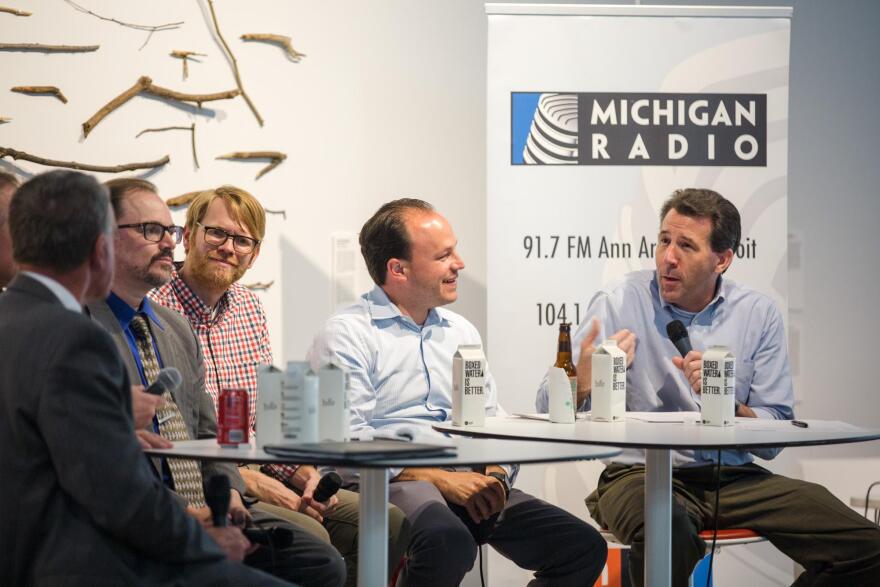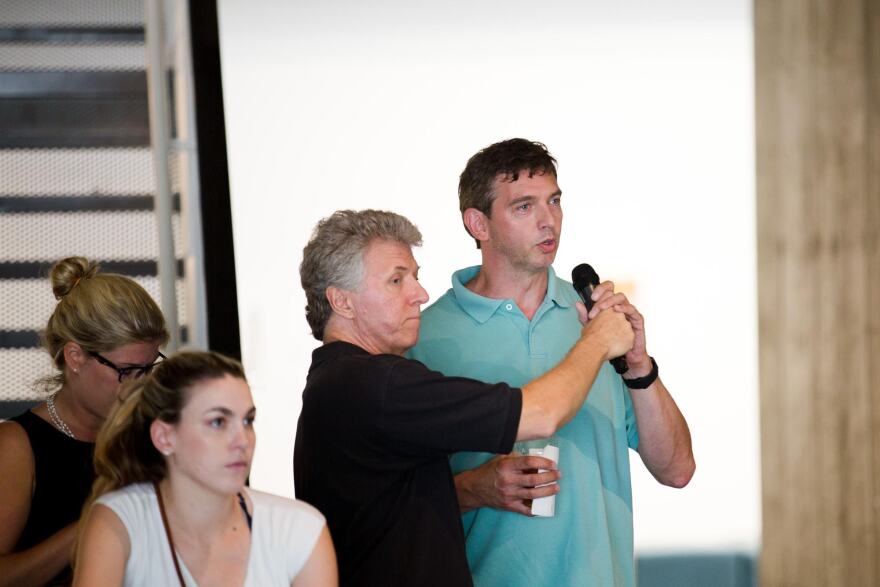Few things are as polarizing in American society as the debate between gun control advocates and gun rights activists.

These arguments often play out in national and state legislatures, with many gun control advocates feeling the National Rifle Association has undue influence over politicians.
Michigan Radio’s Vincent Duffy hosted a panel discussion on the role that guns play in politics and elections at our latest Issues & Ale event.
The event featured five panelists:
Matt Grossmann, director of the Institute for Public Policy and Social Research at Michigan State University Mikael Pelz, professor of political science and public health at Calvin College David Tarrien, professor of education law at Western Michigan University's Cooley Law School Steven Dulan, attorney and professor at Western Michigan University's Cooley Law School Lawrence Stelma, Kent County Sheriff
Duffy opened the discussion with the following question:
What makes the NRA so powerful and its influence so strong politically in the United States?

Panelist Matt Grossmann responded.
He said the NRA is known as the voice of both gun owners and gun rights supporters. And its voice is loud.
“Gun owners, despite being a smaller group than people who are in favor of gun control and despite being slightly poorer on average than other social groups, vote at much higher rates than the general population, participate in civic organizations and feel quite efficacious about political participation,” Grossmann said.
Hear Grossmann’s full response here:
Duffy’s next question was for Panelist Mikael Pelz.
Why is it seemingly so difficult to have a conversation about guns and gun ownership? Why is it such a polarizing issue?

Pelz said politicians often frame issues in broad terms, instead of talking about specific policies.
“They speak in generalities and they speak broadly, which to some degree raises people’s level of fear in terms of how they view this particular issue,” he said.
Using specific language, he said, can reduce fear and increase the public’s understanding of policies.
According to the panel, broad terminology is not the only language problem that arises in gun politics.
Panelist Steven Dulan said people in favor of gun control often appeal to emotion more than statistics.
Questions from audience members included the following:

When will we see guns as a public health issue instead of as a political issue?
How would you characterize the NRA's relationship to gun manufacturers?
It’s been stated that the NRA’s purpose is to represent gun owners, but I’m wondering about the case of Philando Castile, in Minneapolis. He was a lawful gun owner and I haven’t heard anything about the NRA speaking out for him and his case and so I’m wondering, who is the Second Amendment for and how can the Second Amendment be interpreted in terms of race and guns?
Hear the answers to these questions and more by watching a video of the event below or listening to the full conversation above.




